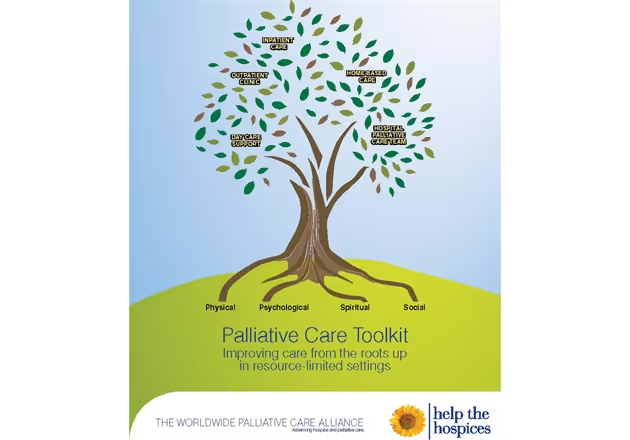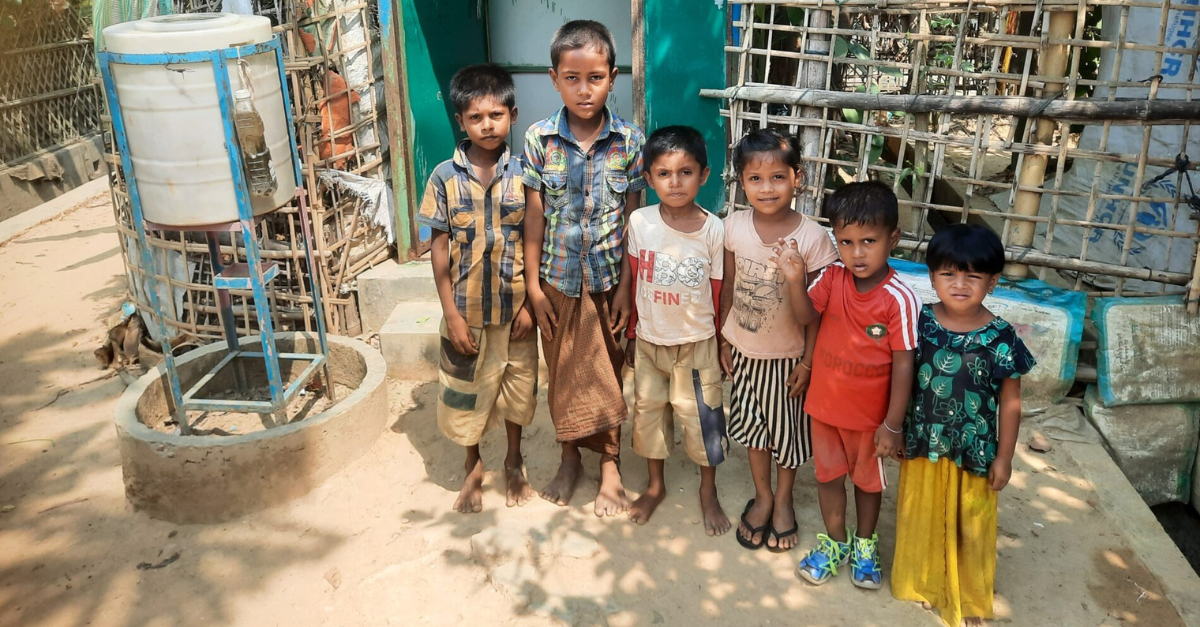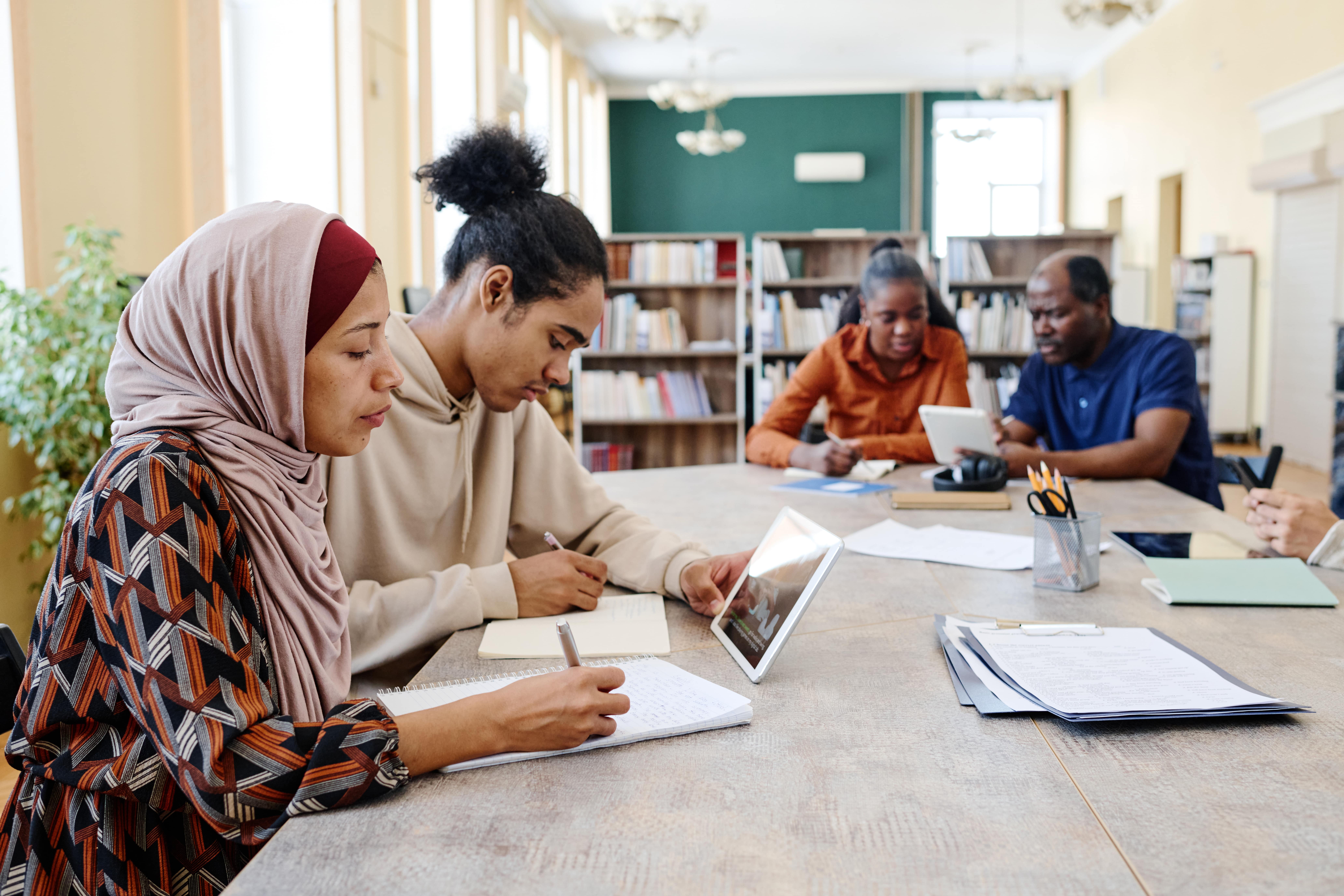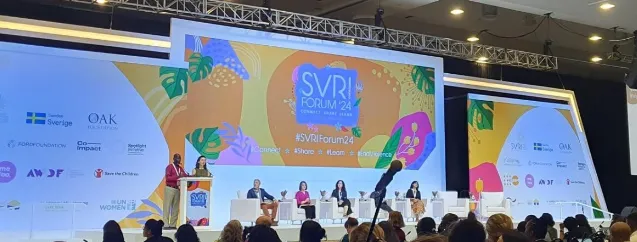Alleviating suffering and promoting human dignity at the very end

End of life care is a neglected area, and yet it affects us all. It affects people in humanitarian interventions, fragile states, developing countries and mature economies equally. Effective palliative care addresses the challenges of health equity and contributes to the resilience of communities. The WHO defines palliative care as “the prevention and relief of suffering by means of early identification and impeccable assessment and treatment of pain and other problems, physical, psychosocial and spiritual.”
We have shown in this project how new modes of training and connectivity, be they through the internet or smart phones, are transforming access to the knowledge and competences frontline health workers and carers need. We can use these tools to raise awareness and share the knowledge of palliative care throughout the humanitarian community. The potential benefits extend from the knowledge and confidence of the learners; to the culture and efficiency of the organisations that support them.
Consider EdX. It started as a collaboration between Harvard University and MIT in 2012, with the aim to make the best courses available to anyone, anywhere in the world, for free. Since then, more than 130 global partners have joined them bringing content from some of the world’s best universities and institutions to learners everywhere, transforming scale and access to the highest quality tertiary education.
This online format does not work for everyone and although good for theoretical concepts, a different approach was needed for teaching more practical competences such as infection prevention and control; and overcoming constraints of language and literacy, hence the MiiHealth ‘ebuddi’ initiative. The initial focus was to show how simulation-based training could help frontline carers keep safe and keep serving their communities. This blog explores its value in the context of support for end of life care. Why is this so important? Families of those dying prematurely are vulnerable to spending all their savings which may leave the family struggling with their own livelihoods. It is not just about the dignity and comfort of a person at the end of their life, but also about their family or community (be they formal or informal) being able to contribute and be part of the journey.
The Lancet noted in its commission on palliative care: The lack of global access to pain relief and palliative care throughout the life cycle constitutes a global crisis, and action to close this divide between rich and poor is a moral, health, and ethical imperative".
In 2016, Elrha’s Research for Health in Humanitarian Crises Programme (R2HC) supported a project led by the Humanitarian Health Ethics Research Group at McMaster and McGill Universities on ‘Ethics &; palliative care during international humanitarian action’; highlighting the need to integrate palliative care in humanitarian healthcare.
"Many situations arise in humanitarian crises when curative care is not the primary, or the only, mode for humanitarian healthcare: a woman with advanced cancer who has been forced to flee to a refugee camp amidst an ongoing civil war, a man with Ebola Virus Disease who has been admitted to a treatment centre at a time when case fatality rates exceed 60%… All these individuals require compassionate care to control their symptoms and alleviate their suffering, while considering psychological, cultural, relational and spiritual dimensions of dying. Responding to them is vital if humanitarians are to truly fulfil their mandates and commitments not only to attempt to save lives, but also to alleviate suffering and promote human dignity."
So, what can be done? The MiiHealth project shows how basic skills and understanding can be quickly shared with carers regardless of language or literacy. New modes of training that have been discussed in the earlier blogs can transform the accessibility, impact, reach and scalability of training.
Where different organisations can share the same training material it can not only save money, but build a common language and understanding which can lead to further collaboration in the sector. In an Op-ed for the Washington Post Bill Gates highlighted the challenge for every organisation to build ‘a culture that encourages new ideas while providing a platform to reinforce collaboration’.
Imagine if there was a model that would enable the best palliative training to be shared between organisations and countries so carers and organisations supporting them could pick and choose the training that was relevant to them. Imagine if it was in a format that was more accessible and had greater impact than traditional classroom-based models? Imagine if it was freely available and the cost savings in individual organisations? We hope our project blogs show how this is within our grasp.
We are hoping to build on the insights from our HIF funded programme. Small gains in knowledge and understanding amongst those providing care or healthcare services could have a great impact on care for the most vulnerable, especially in the field of palliative care.
Top image:Tool kits exists for quickly and easily sharing the essential principles and tools for palliative care with health workers to community volunteers
Stay updated
Sign up for our newsletter to receive regular updates on resources, news, and insights like this. Don’t miss out on important information that can help you stay informed and engaged.
Related articles



Explore Elrha
Learn more about our mission, the organisations we support, and the resources we provide to drive research and innovation in humanitarian response.